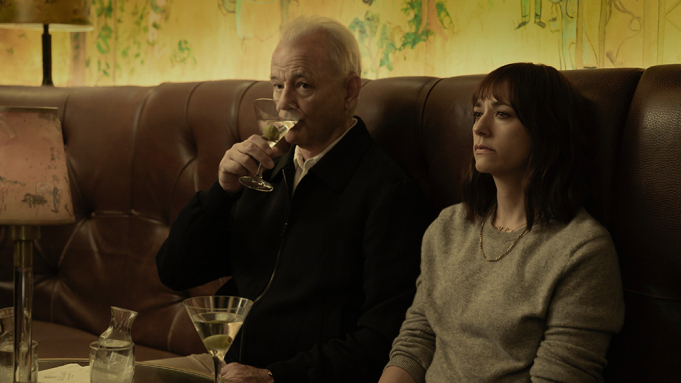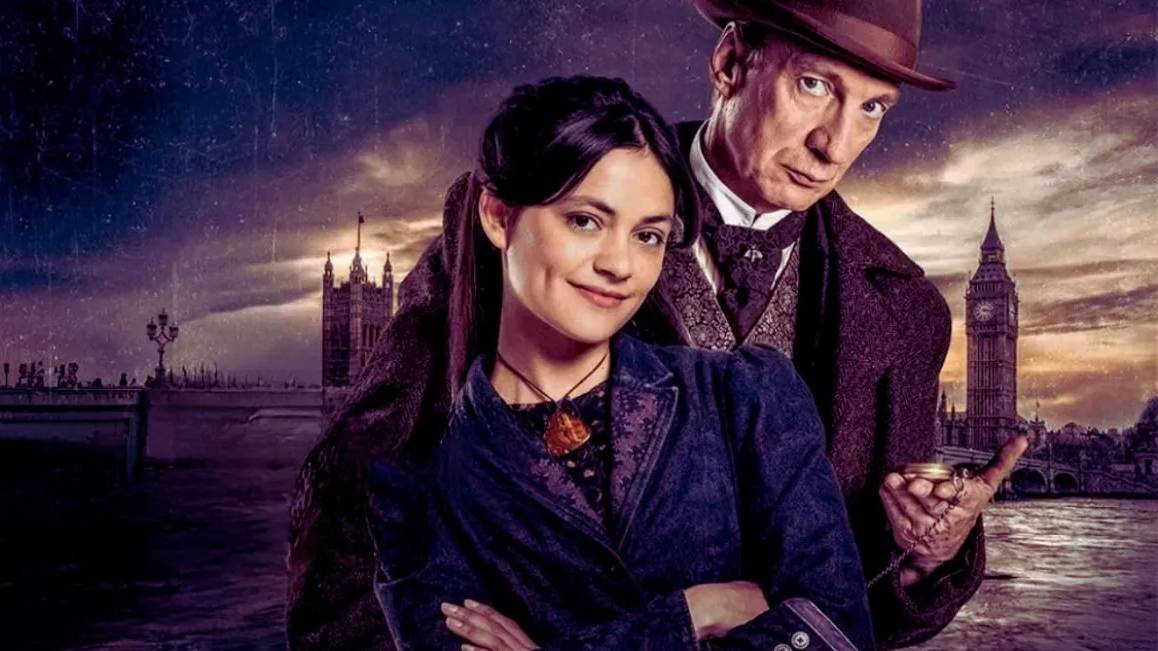What to Watch Verdict
Coppola's latest is deceptively slight, touching on deeper human truths while chronicling an effervescent father-daughter adventure.
Pros
- +
💔Bill Murray brings a lived-in, fully-accepted believability to his lothario father, which enables Felix to remain charming.
- +
💔Coppola's gift at understatement touches on profound truths about the insights our past can lend to our present, and future.
Cons
- -
💔Coppola gives less detail and attention to the husband-wife relationship than the father-daughter one.
Sofia Coppola’s movies frequently feel slight on the surface but often strike a deep chord, and particularly given the state of the world right now, On the Rocks is no exception. The need for personal connections - and restlessness and insecurity about the ones most important to us - is a preoccupying idea at a time when there’s not always enough else to think about, and Coppola’s latest taps beautifully into that sensation when a daughter (Rashida Jones) turns to her serial-philanderer father (Bill Murray) for help after she begins worrying that her husband (Marlon Wayans) is cheating on her. Terrific performances by Jones and especially Murray fill in a complicated back story between the two that informs her character’s choices in the present, even if Coppola doesn’t quite lend the same dimensionality to the relationship that her heroine is desperately trying to protect.
Jones plays Laura, a novelist and stay-at-home mom who starts to worry after her husband Dean’s (Wayans) behavior sets off alarms that he may be cheating with his colleague Fiona (Jessica Henwick). Gingerly feeling around for clues, Laura reaches out to her father Felix (Murray) to get his thoughts; after many indiscretions of his own, he suggests she investigate further, and agrees to help. She’s less certain than he seems to be, but agrees to let Felix snoop around, and feeling creatively blocked, soon finds herself looking in Dean’s phone, and eventually following him around New York in the hopes of catching him in the act.
As their detective act edges closer to the truth, Laura spends more time with Felix, an effortless charmer who Laura seems to have largely forgiven for his own transgressions against her mother. But when the trail leads them to crash Dean’s business trip in Mexico, Laura is forced not only to confront the state of her marriage, but the reality of her relationship with Felix, and begin to look at the ways that has affected her sense of identity, security, and communication.
The pathology of our behaviors is always an interesting subject, and one that sometimes feels almost too mundane to explore. Coppola addresses it in a really engaging way here by distracting viewers with the “fun” of Laura and Felix’s investigation - the two of them bonding against Laura’s better instincts before reaching a conclusion that may completely turn her life upside down, while simultaneously showcasing the exact behavior (and Felix’s belief system) that prevents her from directly approaching Dean about her concerns. Felix’s know-every-doorman-in-New-York effervescence masks his own emotional immaturity, which Laura tolerated and absorbed throughout your childhood, but has now paralyzed her from seeking a truth she’s afraid to learn. Moreover, after witnessing decades of her father’s flings, she is more predisposed to be suspicious of behavior, and to project that upon her own personal and professional insecurities.
Coppola’s focus on the family relationship comes at the expense of the marital one. As a deliberate matter of disconnection or simply a comparative lack of development between Laura and Dean, the husband and wife’s intimacy lacks a certain degree of specificity that helps the drama but less so its resolution. By contrast, Laura and Felix know each other inside and out, making Felix’s biological and anthropological self-justifications for infidelity as informative about him - and the two of them - as the few moments of direct intimacy, Felix’s protectiveness of Laura, and the infrequent, uncomfortable but essential confrontations that break up their routine where he spouts chauvinistic gibberish and she rolls her eyes dismissively.
In adulthood, we spend a lot of time trying to unlearn and escape the lessons our parents taught us, most of which through unspoken behaviors and patterns and traumas that reverberate subconsciously. Coppola touches on this so effectively and deceptively that the story of Laura and Felix’s relationship becomes the climax and catharsis that we’re expecting between Laura and Dean, in that what happens with the married couple matters almost less than between daughter and father. And at the same time, the journey that Laura and Felix embark on is so fun and illuminating and understated even in its often cartoonish hijinks that these epiphanies happen in kind of precisely the way they do in real life - forcing us to take a look at ourselves as much as our partners or family members, and to make the choices to change or grow that aren’t always in the exact direction we’re expecting.
Again, Jones is terrific as Laura, and she turns the character’s uncertainty and passivity into a two-way mirror - first for Felix’s metastasized belief system that justifies his own infidelity but also his complete lack of substantial emotional relationships, and then for her own insecurities, reflected back in managing Felix’s harmful choices. That the movie doesn’t need to make a definitive judgment about their relationship is another strength, especially when people seldom do that in real life, but her evolving clarity gives the character more agency and strength even when she’s flailing in an embarrassing situation she’s been driven towards by her father.
It’s easy to look at a role like this and suggest it’s just Bill Murray being Bill Murray, but the actor has found a new way to make being a cad seem appealing; his performance isn’t self-delusion, it’s self-actualization, and Felix has a remarkable gift for being persuasive when he should be purely repulsive. That his performance doesn’t equivocate these choices is what makes it feel so believable; as much as he might very seriously need to wrestle with the ideas for which he argues, the fact that he doesn’t makes them seem more real within this character’s life. Meanwhile, Wayans’ character, I think, gets less attention than he deserves from Coppola to show the ways that he is an active if distracted partner to Laura, but he carries an easy charm and believability that encourages us to question his fidelity in earnest with the same kind of hope against hope that Laura feels.
Ultimately, I think what the movie captures especially well is the way that the routines in our closest relationships both provides comfort and feeds insecurity - are things the same, or as good as they always have been? Additionally, it touches a surreptitious theme of the pandemic: does that familiarity kill the romance, the active love and interest and engagement we have with the people we decide to spend most of our time with? And is it healthy to use a microscope to examine every shift that occurs, and especially that we may be imagining, because of changes going on just inside ourselves? These are ideas that seem almost foreign in so many movies right now, where the stakes are life and death, and it’s what makes Coppola so vital, even if what she’s accomplishing is very understated. By taking a look at one relationship’s past in order to better understand another’s future, On the Rocks argues for what can be gained in translation - kindness, patience and better understanding, not just of the people around us, but ourselves as well.
On the Rocks will be available in drive-ins and Apple TV+ October 23rd.
Todd Gilchrist is a Los Angeles-based film critic and entertainment journalist with more than 20 years’ experience for dozens of print and online outlets, including Variety, The Hollywood Reporter, Entertainment Weekly and Fangoria. An obsessive soundtrack collector, sneaker aficionado and member of the Los Angeles Film Critics Association, Todd currently lives in Silverlake, California with his amazing wife Julie, two cats Beatrix and Biscuit, and several thousand books, vinyl records and Blu-rays.












